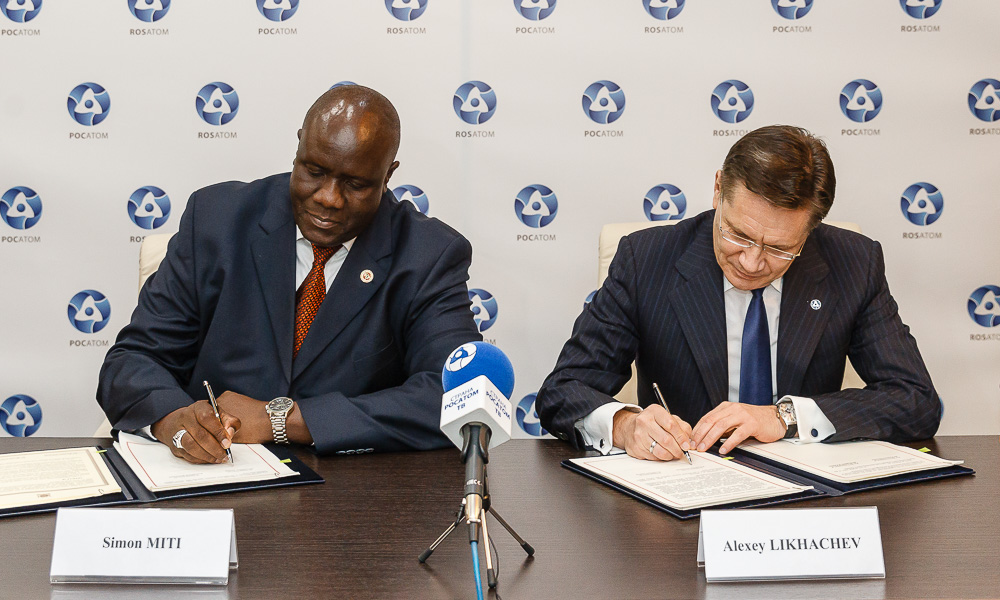
Rosatom To Build Nuclear Center in Zambia
back to contentsThe center will include laboratories and test rooms for different research programs. According to Rosatom, the center allows for doing research in radiobiology and fabrication of radioisotopes to be widely used in cancer diagnostics and treatment. Another application area of nuclear technology will be irradiation of foodstuffs and agricultural products to treat them against pests, extend shelf life and set the scene for an increase in Zambia’s agricultural exports and development of the country’s livestock breeding.
Besides, the center will be an important means of training local talent to work in Zambia’s nuclear industry and deliver national research programs.
“We entered the signing phase within a very short term,” noted Rosatom CEO Alexei Likhachov. “This is just the beginning of our sustained efforts in creating a new industry in Zambia. We are in for a great deal of joint research. The reactor will be a driver of all those projects, and my hope is that it will take Zambia to a new level in technology. Besides, this is a very good commercial project.” He noted that nuclear industry had a very long life cycle. “Today, we are setting goals for centuries ahead. My sincere hope is that the coming centuries will see progress of our commercial projects and bring handsome profits to the stakeholders. Russia is ready to give you support and share its best technologies and practices at every step,” Rosatom CEO added.
“This is a very important step for us all. First, it kicks off a process of helping us in national industrialization based on nuclear technology. We are grateful to the Russian government and Rosatom for offering this opportunity. Second, it will help us deal with one of the key challenges. We are confronted with a shortage of water and depend on this resource in power generation. Last year our economy faced a 50% slump for this reason. With the climate change continuing, we are not certain to avoid such problems in the future. We need to improve the country’s energy mix to secure sustainable power supply for the next 15 years,” said Simon Miti. Apart from staff training, he noted, Rosatom will help Zambia establish a legal framework for peaceful uses of nuclear energy and improve public acceptance of the nuclear. “We have started this work thanks to concerted efforts of our delegations,” he said.
Rosatom has built over 120 research reactors across the globe, with over 20 of them outside Russia, particularly in China, Egypt, Germany, Czech Republic, etc. In March 2016, Russia and Bolivia agreed to construct a nuclear science and technology center that would comprise a research reactor. The framework agreement provides for the center to be built in El Alto. It will feature a multi-purpose gamma irradiation unit, a pool-type pressurized water research reactor, a cyclotron, an engineering department and several research laboratories. The new research and development center will be Bolivia’s first step into the world of nuclear technology and its first attempt at applying it in science, medicine, industry and agriculture.
In August 2016, Rosatom and the Bolivian Atomic Energy Agency (ABEN) signed the first commercial contracts related to the construction project. They cover a site survey and comprehensive assessment of Bolivia’s nuclear infrastructure. Bolivia will invest 300 million dollars in the project.




